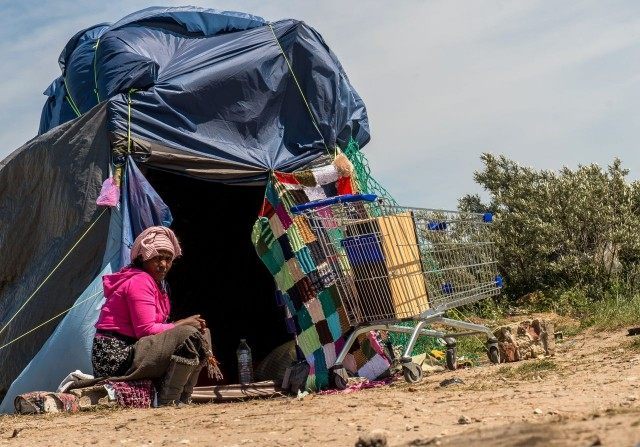Women and children living in the ‘Jungle’ at Calais are having to hide away in tents or take beds in a locked detention centre to avoid being attacked by the male migrants living around them. Just ten percent of the camp’s 5,000-strong population are female, making them vulnerable to violent attacks.
Milad, a 22 year old girl from Aleppo has told France 24 how she only leaves her tent in the camp twice a day, to use the bathroom. A law student who wants to travel to London to complete her studies, she has been accompanied on her trip by her uncle Yasser; the pair take turns to sleep so that they can keep a lookout for potential aggressors.
“I sleep and eat here, and I’m surrounded by men,” she said. “The people living next to us are Syrian, but we don’t know the people living in the rest of the camp, they’re from other countries. They speak different languages and have different cultures. We don’t know anything about them, so we’re scared and have to be on our guard.”
According to the Jersey Evening Post, the ethnic makeup of the camp is about 35 percent Sudanese, 30 percent from Afghanistan, Pakistan, Iran and Iraq, 25 percent from Eritrea, Ethiopia and Somalia, 5 percent Syrians and 5 percent from North Africa, with a handful of eastern Europeans.
Next to the Jungle is ‘La Vie Active’ refuge, set up seven months ago to house women and their children. Currently home to 115 women and children, a further 80 are on the waiting list for beds, with priority given to women who have children with them. Most of the inhabitants are from Eritrea, Ethiopia and Sudan.
Carine Zerouali, manager the refuge ensures that the gates are always locked, “to protect the women and children who live here,” she said.
“We hear that there are prostitution rings in there (pointing to the Jungle). I think the women are definitely more vulnerable to sexual violence when they’re living in the Jungle than when they’re here.”
An alternative centre, the Jules Ferry Day Centre also on the edge of the Jungle offers a further 50 beds for women and children, although men can use the centre during the day to recharge mobile phones, use the sanitary facilities and have hot meals.
Faustine Douillard, a social worker for the NGO France Terre d’Asile (France, Land of Asylum), visits the camp every day to advise those claiming asylum in France. “I have to go through the men to speak to the women,” she says. “They don’t know their rights, and that makes them very vulnerable.”
Some of the women are forced to take male “protectors,” who demand sexual favours in return for keeping other men away.
Conditions at the Jungle are notoriously dire. At the beginning of the year, when authorities first conceded use of the land to the 500 or so migrants in the area, Christian Salomé, of the association L’Auberge des Migrants, told the Guardian: “This must be one of the worst refugee camps in the world. Even in African camps they have water and toilets. It’s just a wasteland.”
“I didn’t believe places like this could exist,” said an anonymous Afghan physics graduate. “At night it’s like a horror movie.”
The problem is, however, not new. In 2008, a British journalism student hoping to talk to some of the migrants in the first Jungle for a piece on illegal immigration was brutally gang-raped by those she wanted to interview.
A local police spokesman said: “She appeared to be working alone, which was clearly a very dangerous thing to do. We fear that the men she was reporting on attacked her in the wood where they were staying.”
Father Jean-Pierre Boutoille, of the refugee charity C’Sur, said: “There are lots of journalists, including students, who come here to get to the heart of what’s going on, to write reports and produce films.
“When reporters contact us, we always ask to accompany them. We know the refugees as we see them every day.
“We would never allow a young female adventurer in this wood, especially not at night.”

COMMENTS
Please let us know if you're having issues with commenting.